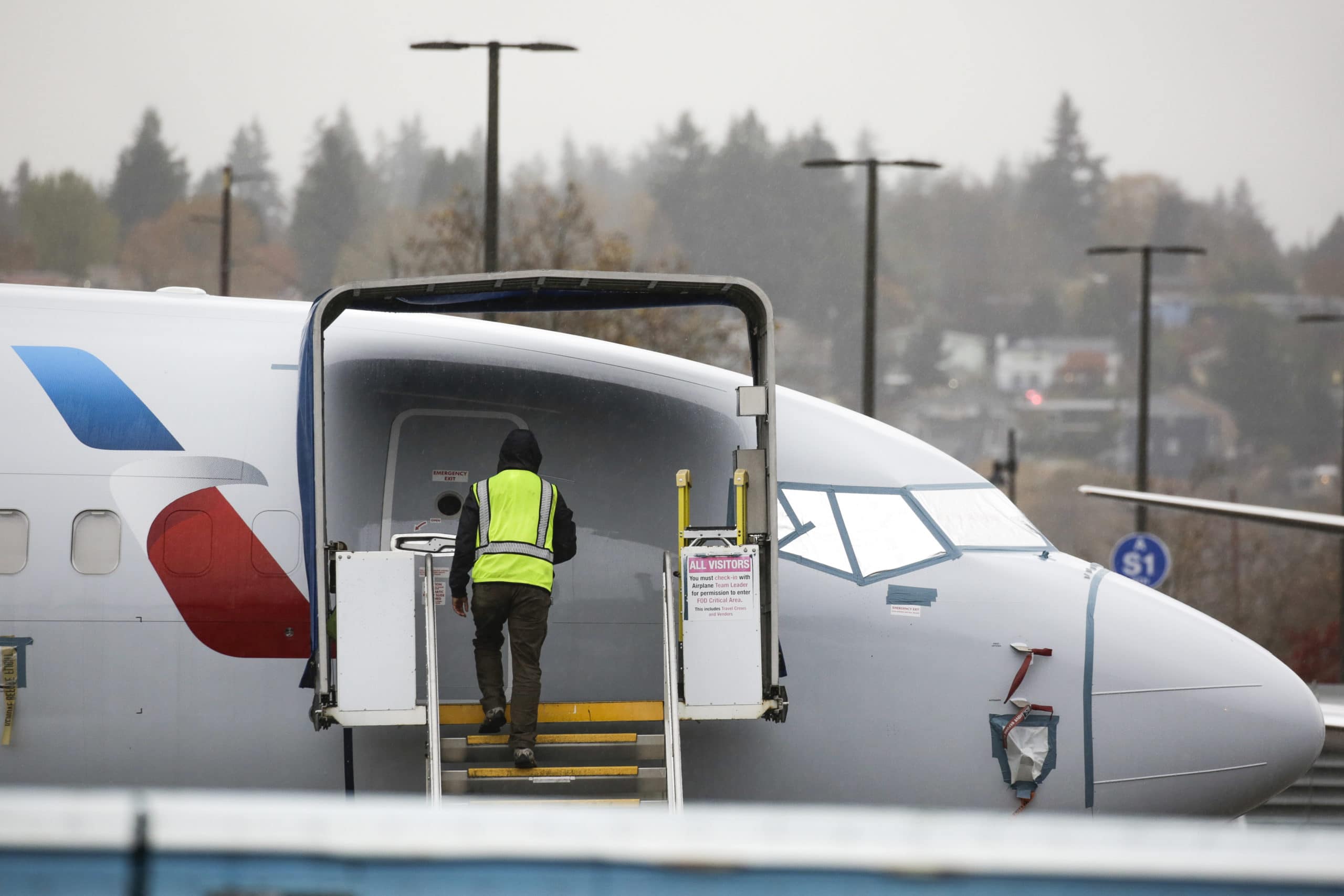TOPLINE Boeing’s board of directors agreed Friday to pay the company hundreds of millions of dollars and impose new safety measures, closing out a lawsuit brought by Boeing shareholders that began after two crashes of the latest version of its best-selling passenger jet killed hundreds of people and caused regulators to ground the jet worldwide.
KEY FACTS
The proposed settlement — which a Delaware state judge still needs to approve — comes more than a year after New York State Comptroller Thomas P. DiNapoli and the Fire and Police Pension Association of Colorado sued Boeing’s directors.
As part of the settlement, members of Boeing’s board of directors agreed to pay $237.5 million directly to the company — a sum that will come from the directors’ insurers — according to a copy of the agreement released Friday evening by DiNapoli’s office.
Boeing will also hire an ombudsperson to serve as a “neutral third party” to handle any concerns from company employees who work with the Federal Aviation Administration.
The board of directors will add a new member with experience in “aviation/aerospace, engineering, and/or product safety oversight,” and moving forward, it’s expected to ensure at least three board members have a background in those areas.
The settlement agreement noted the defendants “have denied and continue to deny” any allegations of wrongdoing.
Boeing told Forbes in a statement the company has already “taken significant actions to reinforce and strengthen our commitment to aviation safety,” and said the settlement “builds on those actions with additional oversight and governance reforms.”
CRUCIAL QUOTE
“This settlement will send an important message that directors cannot shortchange public safety and other mission-critical risks,” DiNapoli, whose office oversees New York’s pension fund for government employees, said in a statement Friday.
KEY BACKGROUND
Boeing’s first 737 MAX entered service in 2017, the latest iteration of the company’s best-selling plane, which first flew in 1967. But the new version of the plane was grounded worldwide and deliveries halted after the crash of a MAX jet in Ethiopia in March 2019, which came five months after a crash in Indonesia.The crashes, which killed 346 people, were blamed on a faulty addition to the flight control system that hinged on a single sensor, causing the planes to pitch downward if it sensed that the plane’s angle of attack was too high. The FAA eventually cleared the MAX to return to service late last year. But DiNapoli and the Colorado pension plan argued the disaster was linked to a broader lack of attention to safety by board members, who they claimed “breached their fiduciary duties to the company by dismantling Boeing’s lauded safety-engineering corporate culture in favor of what became a financial-engineering corporate culture.” The two shareholders served as lead plaintiffs in a lawsuit filed against the board on Boeing’s behalf, an arrangement known as a “derivative lawsuit.”
By Joe Walsh, Forbes Staff
